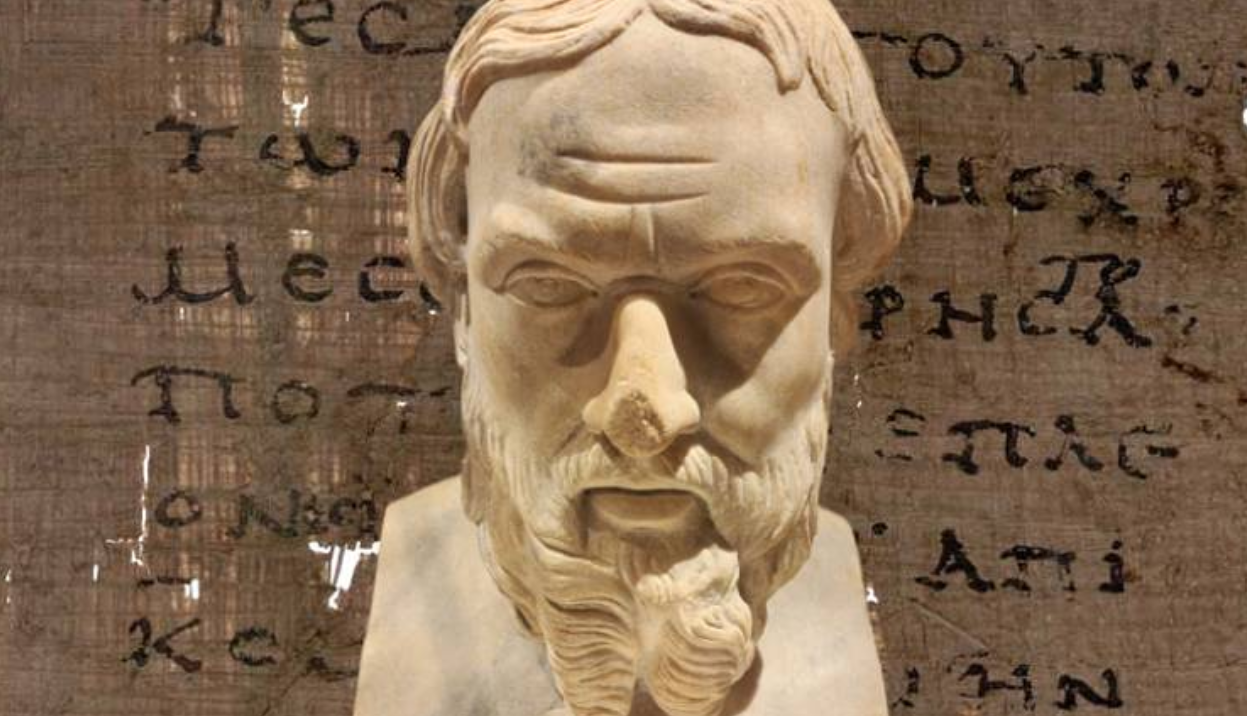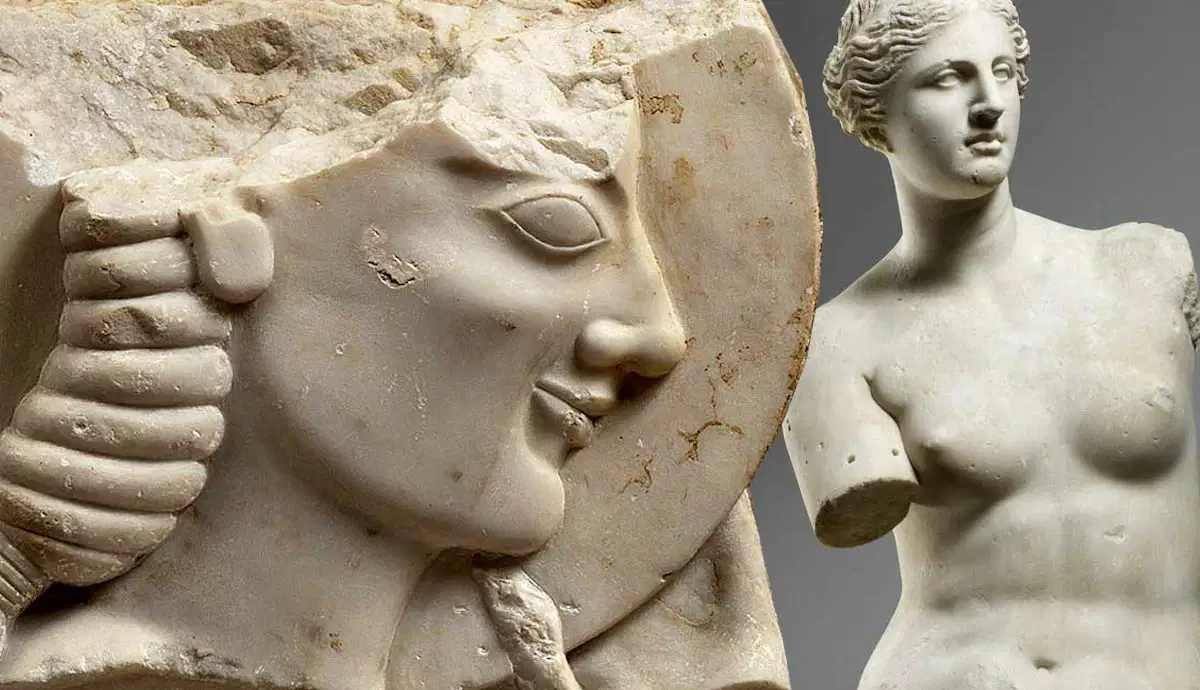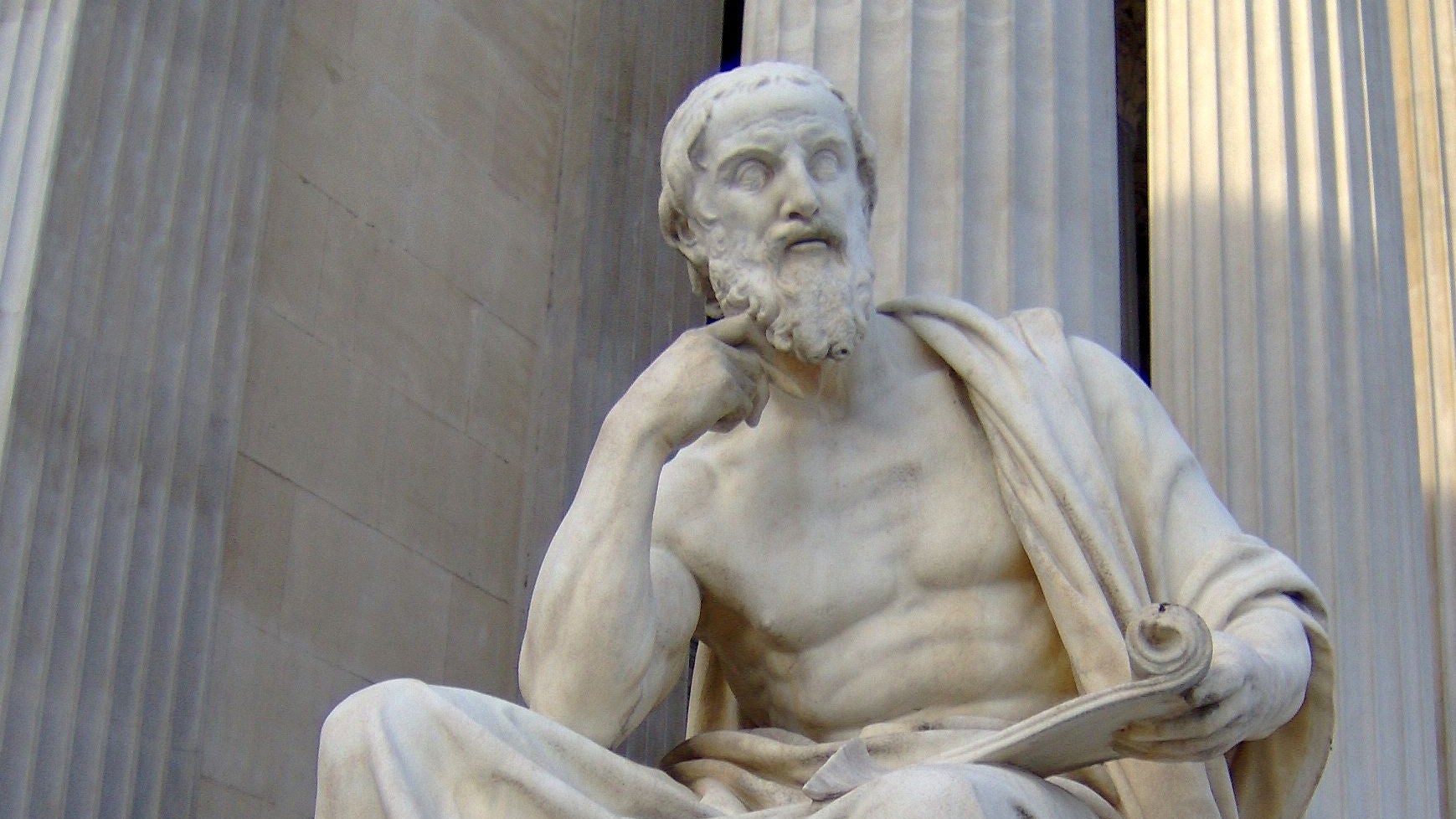By Evi Chrysoheri,
Herodotus is one of the most widely read authors in world literature. His work has been an irreplaceable historical source for a pivotal point in European history, as well as for Greece’s transition from the Archaic to the Classical period, and its conflict with Asia. Herodotus’ book also presents in a unique way the panorama of the then-known world, with a focus on Greece and the Near East, which often resembles a fascinating fairy tale.
We have limited information about the life of the historian Herodotus, most of which comes from the entries “Herodotus and Panyassis” in the Suda, a Byzantine encyclopaedia that preserves material from sources partially lost to us. No biography of Herodotus survives, and references to the author himself within his own work is sparse. More specifically, Herodotus was born on the southwestern coast of Asia Minor, in Halicarnassus, a prosperous city in Caria, located in the Ceramic Gulf (modern-day Bodrum, Turkey). In the wider region of Halicarnassus, the Ionian element dominated over the Doric, as can be observed in his work.
From a young age, Herodotus found himself in a multicultural environment where Greek and pre-Greek elements coexisted. His likely birthdate is around 484 BC, between the first and second Persian invasion of Greece. His father was named Lyxes, a typical Carian name and his mother’s name was either Dryo or Rhio. He also had a brother named Theodorus. His family was probably prominent and highly educated, as indicated by his uncle, Panyassis who was a poet. Thanks to his family’s high social standing, financial prosperity and interest in intellectual cultivation, the young Herodotus received an exceptional education, as evidenced by his work.

Herodotus went on many journeys but his extended stay in Athens proved to be crucial in shaping his personality. He arrived there after the founding of Thurii around 447 BC. At that time, Athens was flourishing economically, militarily, politically and culturally. Herodotus had the opportunity to interact with great figures of the era, such as Sophocles a dear friend of his, Euripides, Pericles and others. During his time in Athens, he gave public recitations of excerpts from his book, which appear to have been met with enthusiasm by the Athenians, despite the fact that Thucydides (the next great historian) seems to have criticized them. Herodotus was well-liked in Athens and lived the life of a respected visitor, free from the rights and obligations that would have come with full citizenship. His status allowed him to enjoy the intellectual and cultural benefits of the city without being bound by its political duties.
It is not known whether Herodotus remained in Thurii (as he participated in its founding) until the end of his life, or if he returned to Athens and the Aegean. The exact place and time of his death remain uncertain. Although, there is an ancient reference suggesting that he died in Pella, Macedonia, it is more likely that he passed away in Thurii. His death can be inferred from his work, which he continued to revise until the end of his life. According to the traditional theory, he published his work between 430 and 425 BC. However, the author seems to be aware of the events that occurred as late as 421 BC, leading us to place his death shortly after that year.

The title “Father of History” for Herodotus originated from Cicero. While it is certainly a flattering characterization, it raises the question of whether it reflects reality or is merely a compliment for his achievements. To determine this, we must consider Herodotus’ contribution to historiography. He was the first one to methodically collect information, evaluate sources and narrate events in a coherent, detailed manner incorporating both historical facts and cultural observations. His methods, while not always strictly objective by modern standards, laid the groundwork for historical inquiry. Although, Herodotus’ work blends history with elements of storytelling and myth, his approach was groundbreaking for his time.
Thus, while Cicero’s title may have been meant as praise, it is also largely justified and reflects the truth, given Herodotus’ role in shaping the practice of writing history as a structured, methodical discipline.
Reference
- Παπαθωμάς Αμφιλόχιος. ΤΟ ΠΡΩΤΟ ΒΙΒΛΙΟ ΤΩΝ ΙΣΤΟΡΙΩΝ ΤΟΥ ΗΡΟΔΟΤΟΥ. Σύλλιβος.




